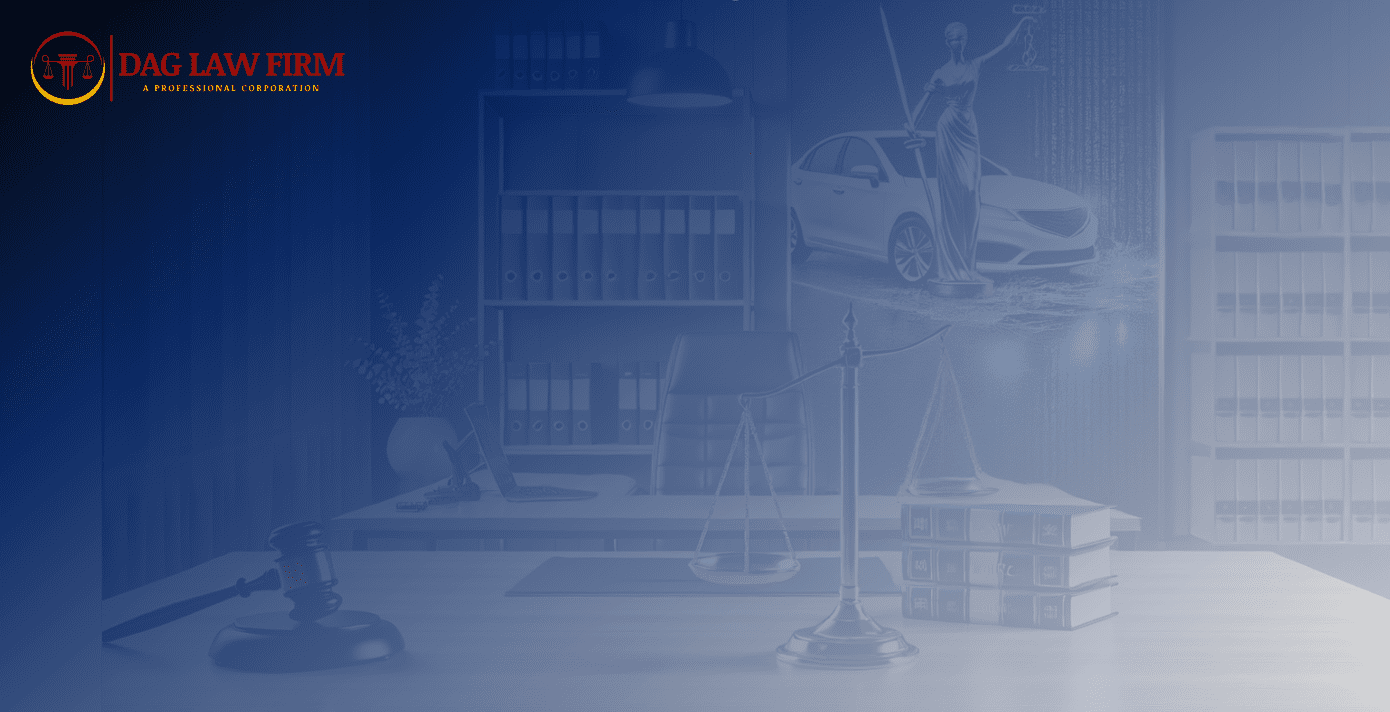DAG Law Firm: Understanding Negligence in Personal Injury Claims
Navigating the complex world of personal injury and accident claims can be overwhelming, especially when you’re already dealing with the physical and emotional toll of an unexpected injury. At DAG Law Firm, we bring extensive expertise to handling personal injury cases and offer unparalleled guidance, counseling, and support to secure the financial compensation you deserve. With a deep recognizing of the legal complexities involved, we provide personalized support every step of the way, ensuring that you fully comprehend each aspect of the legal process. Whether you seek advice or action, count on us to represent your interests and address your distinct needs with unwavering dedication and diligence.
Negligence in Personal Injury Cases
When you’ve been injured in an accident, recognizing negligence is crucial in determining your legal options and potential for compensation. Here’s what you need to know about negligence in personal injury claims:
What is Negligence?
Negligence refers to the failure to exercise the level of care and caution that a reasonably prudent person would under similar circumstances. In the context of personal injury cases, negligence involves a breach of this duty of care, resulting in harm to another person.
Proving Negligence
To hold someone legally responsible for your injuries, you must establish the following elements of negligence:
Duty of Care: You must show that the at-fault party owed you a duty of care. For example, drivers have a duty to operate their vehicles safely, and property owners have a duty to maintain safe premises.
Breach of Duty: You need to demonstrate that the at-fault party breached their duty of care. This could include reckless driving, failure to maintain safe premises, or other acts of carelessness.
Causation: You must prove that the at-fault party’s breach of duty directly caused your injuries. This often involves connecting the negligent actions to the specific harm you suffered.
Damages: Finally, you need to show that you suffered actual damages as a result of the at-fault party’s negligence. This can include medical expenses, lost wages, and pain and suffering.
Comparative Negligence
In some cases, the injured party may also be found partially at fault for the accident. California follows a comparative negligence system, which means that the amount of compensation you can receive may be reduced based on your percentage of fault. Understanding how this system applies to your case is crucial in seeking the full compensation you deserve.
Can You Waive Negligence?
In the context of personal injury claims, there may be questions around whether negligence can be waived. Our experienced attorneys can help address these concerns and guide you through the legal implications. Here’s what you need to know:
The Role of Negligence
Negligence is the foundation of many personal injury claims, as it establishes the at-fault party’s responsibility for your injuries. While negligence itself cannot be waived, there are circumstances where other factors may come into play, potentially impacting the outcome of your case.
Contributory Negligence
In some states, including California, contributory negligence laws may affect your ability to recover damages if you are found partially at fault for the accident. However, California follows a comparative negligence system, which allows for recovery even if you are partially responsible for the incident. Understanding how these laws apply to your situation is essential in pursuing a successful claim.
Assumption of Risk
In certain scenarios, the at-fault party may argue that you assumed the risk of injury by engaging in a particular activity. While assumption of risk can be a defense in some cases, it does not necessarily absolve the at-fault party of all liability. Our legal team can help assess the validity of this defense and advocate for your rights.
Waivers and Releases
In some cases, individuals may sign waivers or releases before engaging in certain activities, such as recreational sports or events. While these documents may limit liability in certain circumstances, they are not absolute protections against negligence claims. Our attorneys can analyze the specifics of your situation to determine the validity of any waivers or releases that may have been presented to you.
Consult with a Legal Professional
Given the complexities surrounding negligence and its potential impact on your personal injury claim, seeking guidance from a knowledgeable attorney is crucial. At DAG Law Firm, we offer comprehensive legal counsel and representation to ensure that your rights are protected and that you receive the compensation you deserve.
Wrapping up
Navigating the legal landscape after a personal injury can be daunting, but you don’t have to face it alone. Schedule an appointment with our experienced team today and let us guide you through the process, providing the support and advocacy you need to move forward confidently.



